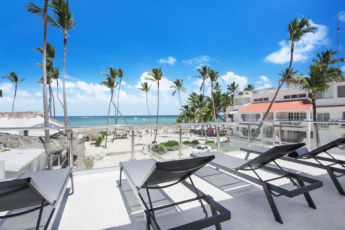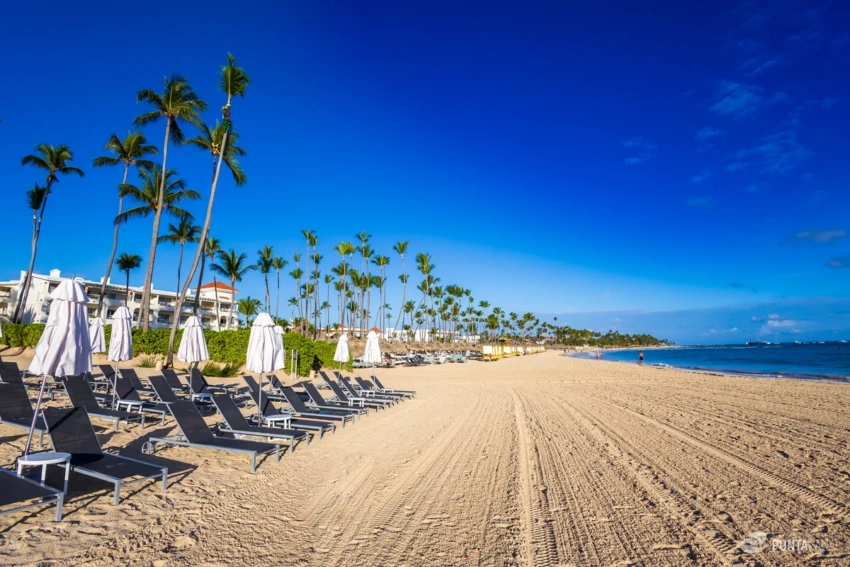Unexpected Visitors: Policies on Guests and Overnight Stays
Understanding the Importance of Guest Policies

Unexpected Visitors: Policies on Guests and Overnight Stays
In today’s interconnected world, guest policies play a pivotal role in maintaining the delicate balance between community living and individual privacy. Whether in apartment complexes, shared housing, or dormitories, these policies serve as the cornerstone for harmony and security.
1. Defining Guest Policies
Guest policies are designed to establish clear guidelines for the presence of non-residents in a living space. They typically cover aspects such as the number of allowable guests, visiting hours, and procedures for overnight stays. These policies are essential because they help prevent misunderstandings and conflicts among residents, ensuring everyone is on the same page.
In various living arrangements, guest policies can vary significantly. For instance, in a college dormitory, policies might be more relaxed to accommodate the social nature of student life, while in a luxury apartment complex, stricter protocols may be in place to safeguard the tranquility of the community. Regardless of the setting, the necessity of these policies lies in their ability to regulate guest interactions and uphold the rights of all residents.
2. Legal and Safety Considerations
Legal and safety considerations are at the forefront of crafting effective guest policies. From a legal standpoint, it’s vital to consider liability issues that may arise from guests’ actions. Landlords and property managers could be held accountable for incidents involving visitors, which underscores the importance of having robust policies that address these potential legal risks.
Safety is another critical aspect influencing guest policies. Ensuring that guest access is controlled helps protect residents from potential threats. For example, requiring guests to sign in or register with security personnel can deter unauthorized access and enhance the community’s security framework. Additionally, insurance considerations come into play, as certain insurance policies may require documentation of guest policies to maintain coverage.
3. Balancing Privacy and Hospitality
One of the challenges in creating guest policies is maintaining a balance between personal privacy and extending hospitality to guests. While it’s important to respect residents’ privacy, it’s equally crucial to foster an environment where they feel comfortable inviting friends and family over.
Effective guest policies should allow for flexibility and adaptability. For instance, permitting a reasonable number of overnight stays per month can accommodate residents’ social needs while safeguarding the privacy of others. Clearly communicating these allowances in the policies ensures that residents understand their rights and responsibilities, promoting a harmonious living environment where privacy and hospitality coexist seamlessly.
Developing Clear Policies for Guests and Overnight Stays
Creating effective guest policies is essential for ensuring a harmonious living environment. It requires clear communication, fairness, and a robust enforcement mechanism to accommodate diverse living situations and maintain order.

Punta Cana
1. Setting Clear Expectations
Establishing clear expectations is the cornerstone of effective guest policies. This involves outlining specific guidelines regarding who can visit, how long they can stay, and any restrictions on overnight stays. These expectations should be communicated to all residents through multiple channels, such as written agreements, emails, or meetings, to ensure everyone is on the same page.
- Open Communication: Regularly update residents on any changes to guest policies and encourage them to voice concerns or suggestions.
- Detailed Guidelines: Clearly define terms such as “overnight guest” and specify time limits for visits to avoid misunderstandings.
- Accessible Documentation: Ensure that all documentation regarding guest policies is easily accessible to residents, perhaps through a shared online platform or community portal.
2. Creating a Fair and Inclusive Policy
Fairness and inclusivity are crucial in developing guest policies that respect the diverse needs of different residents. This involves considering various living situations, such as families, single occupants, and roommates, and ensuring policies are equitable.
- Inclusive Language: Use language in the policies that is respectful and considerate of all residents, regardless of their backgrounds or lifestyles.
- Flexible Provisions: Allow for flexibility in certain situations, such as accommodating family visits during holidays or special events.
- Community Input: Involve residents in the policy-making process to ensure that their voices are heard and their unique situations are considered.
3. Enforcement and Consequences
Enforcing guest policies effectively involves setting clear consequences for violations and ensuring these are consistently applied. This can be challenging but is essential for maintaining the integrity of the policies and the living environment.
- Graduated Penalties: Implement a system of graduated penalties that escalate with repeated violations, from warnings to fines or other sanctions.
- Consistent Application: Ensure that all residents are subject to the same rules and consequences, preventing any perception of favoritism or bias.
- Conflict Resolution: Provide avenues for residents to appeal decisions or resolve disputes related to guest policy violations.
Our Best Ocean View Villa Rentals in Punta Cana
With our exclusive selection of ocean view villas, you can experience the luxury and relaxation of Punta Cana. Whether you’re planning a family getaway or a romantic escape, our properties offer the perfect setting.

Exclusive Ocean View 5-Star Cap Cana Villa for Rent - Chef, Butler, Maid & Golf Cart
from $4600 night Read more
Luxury Villa Right on Los Corales Beach - With Heated Pool, Maid & Chef in Bávaro
from $2995 night Read moreManaging Unexpected Visitors
Unexpected visitors can create unique challenges when it comes to maintaining the harmony and security of a living environment. However, with the right strategies, you can manage these situations efficiently and courteously.
1. Immediate Response Tactics
When faced with unexpected visitors, it’s essential to have a set of immediate response tactics that are both courteous and firm. These tactics should aim to address the situation in a way that respects both the residents’ privacy and the visitor’s dignity.
- Stay Calm and Polite: Regardless of the visitor’s demeanor, maintaining a calm and polite attitude sets the tone for a respectful interaction.
- Assess the Situation: Determine whether the visit is a harmless surprise or requires immediate action, such as in cases of suspicious behavior.
- Firmly State Policies: Politely but clearly inform the visitor of any policies regarding unannounced visits, emphasizing the importance of prior notice.
Having a pre-determined protocol helps ensure a consistent approach to managing unexpected visitors, reducing the potential for conflict.
2. Communication Strategies
Effective communication is key when dealing with unexpected guests. It’s important to convey messages clearly to avoid misunderstandings and ensure that everyone involved is on the same page.
- Use Clear Language: Avoid jargon or ambiguous terms when explaining guest policies to visitors. Simple and direct language is most effective.
- Listen Actively: Allow the visitor to explain their presence. Understanding their perspective can aid in resolving the situation amicably.
- Offer Alternatives: If possible, suggest alternative arrangements, such as scheduling a visit at a later time when it would be more convenient.
Effective communication not only resolves immediate issues but also fosters a sense of understanding and cooperation among residents and visitors.
3. Conflict Resolution
Sometimes, despite all efforts, conflicts may arise due to unexpected visitors. In such cases, having a conflict resolution strategy becomes crucial.
- Mediation: If a neutral third party is available, they can mediate the discussion between the resident and the visitor to reach a mutually agreeable outcome.
- Document Incidents: Keep a record of any significant issues related to unexpected guests, which can be useful for future reference or when discussing policy updates.
- Seek Professional Help: In cases where conflicts escalate, it might be necessary to involve security personnel or legal advisors to ensure the safety and well-being of all parties.
Conflict resolution strategies help in maintaining a peaceful living environment while ensuring that all parties feel heard and respected.
By establishing clear immediate response tactics, employing effective communication strategies, and having robust conflict resolution mechanisms, you can manage unexpected visitors with confidence and ease, ensuring that the resident community remains harmonious and secure.
Guest Policies in Different Living Arrangements
Guest policies can significantly vary depending on the living arrangement, whether it’s an apartment complex, college dormitory, or shared housing situation. Understanding these differences is vital for both residents and property managers to ensure a harmonious living environment.
1. Apartment Complexes and Condos
Apartment complexes and condominiums are known for their shared facilities and amenities, which necessitate specific guest policies to maintain order and security. These policies often include:
- Visitor Registration: Many complexes require visitors to check in at a reception or security desk. This helps in monitoring who enters and leaves the premises.
- Limited Guest Hours: Some buildings impose restrictions on guest visit hours, usually aligning with quiet hours to ensure residents’ comfort.
- Amenity Access: Guests might be restricted from using certain amenities, such as pools or gyms, to prevent overcrowding and ensure availability for residents.
Comparison of Guest Policies in Apartment Complexes
| Policy Aspect | Typical Implementation | Purpose |
|---|---|---|
| Visitor Registration | Check-in at reception/security | Track entry and exit for security |
| Guest Hours | Restricted to non-quiet hours | Minimize disturbance |
| Amenity Access | Limited or no access | Prevent overcrowding |
These policies not only help in maintaining peace but also play a crucial role in security management, making it essential for residents to familiarize themselves with the rules.
2. College Dormitories

Punta Cana
Guest policies in college dormitories are designed with student safety and academic environment in mind. These policies often include:
- Guest Passes: Students may need to obtain guest passes for their visitors, often limited to a certain number of overnight stays per month.
- Roommate Consent: Policies typically require the consent of roommates before allowing overnight guests, ensuring all residents are comfortable with the arrangement.
- Quiet Hours: Strict adherence to quiet hours is enforced, with guests expected to abide by these rules to support the academic focus of dorm life.
These measures ensure that while students can enjoy social visits, their primary purpose of education is not compromised. Moreover, these policies foster a respectful and cooperative living environment among students.
3. Shared Housing and Roommates
Shared housing situations, such as those with roommates, require a unique approach to guest policies. Here, flexibility and communication are key:
- Roommate Agreements: It’s common for roommates to establish personalized agreements that specify guest policies, including approval processes for overnight stays.
- Shared Spaces: Rules often cover the use of shared spaces like living rooms or kitchens when guests are present, ensuring mutual respect and privacy.
- Conflict Resolution: Having a predetermined method for resolving disputes related to guests can prevent misunderstandings and maintain harmony.
In these scenarios, it’s essential for all parties to engage in open dialogue, allowing each person to express their comfort levels and boundaries regarding guests.
In conclusion, guest policies must be tailored to the specific needs and dynamics of different living arrangements. By understanding and respecting these policies, residents can enjoy both the benefits of social interactions and the tranquility of their living spaces.
Technology and Guest Policy Management
In today’s rapidly evolving digital landscape, leveraging technology for effective guest policy management has become increasingly crucial. Discover how modern tools can streamline processes, enhance security, and improve communication regarding guest policies.
1. Digital Access and Security Systems
As technology advances, so do the methods available for managing guest access and ensuring security in residential spaces. Digital access controls and security systems offer a sophisticated approach to enforcing guest policies. Keyless entry systems, for instance, allow residents to manage who can enter their home and when. These systems often include features such as temporary access codes or digital keys that can be easily shared and revoked, providing a secure yet flexible way to welcome guests.
Moreover, surveillance systems with smart cameras can monitor entrances and common areas to ensure compliance with guest policies. These cameras can send real-time alerts to residents’ smartphones, allowing them to respond promptly to any unauthorized entries. In addition, some systems integrate with smart home devices and can be controlled remotely, offering an added layer of convenience and security.
2. Communication Apps for Policy Updates
Keeping residents informed about the latest guest policies is vital for compliance and harmony. Communication apps have emerged as essential tools in this regard. Platforms like Slack, Microsoft Teams, or proprietary apps developed by housing associations can be utilized to send regular updates and reminders about guest policies.
These apps facilitate instant communication and ensure that residents are always up-to-date with any changes. They can also serve as a forum for residents to ask questions or seek clarification on specific policy aspects. Push notifications can be particularly effective for reaching all residents simultaneously, ensuring no one misses critical updates.
3. Online Platforms for Policy Documentation
Creating a centralized, easily accessible repository for guest policies is imperative for transparency and accountability. Online platforms such as Google Drive, Dropbox, or dedicated property management software can be utilized to store and share policy documents. These platforms ensure that all residents have access to the most current version of the policies at any time.
Benefits of Using Online Platforms for Policy Documentation
| Platform | Accessibility | Features | Ease of Use |
|---|---|---|---|
| Google Drive | High | Document sharing, real-time editing | Easy |
| Dropbox | Medium | File synchronization, offline access | Moderate |
| Property Management Software | High | Integrated management tools, secure access | Varies |
These platforms not only store documents but also allow for collaborative editing, ensuring that policies can be updated swiftly when needed. They also provide audit trails, which can be invaluable for tracking changes and ensuring compliance.
By embracing these technological solutions, communities can manage guest policies more effectively, ensuring a secure and harmonious living environment for all residents.
Adapting Policies for Special Circumstances
The dynamic nature of living arrangements often requires a flexible approach to guest policies, especially during special circumstances. Adapting these policies ensures that they remain relevant and effective, maintaining harmony in various situations.

Punta Cana
1. Holiday and Event Exceptions
During holidays and special events, the influx of guests can significantly increase. It is essential to adjust guest policies to accommodate such times without compromising security and comfort. Holiday exceptions often involve extending guest limits, allowing overnight stays, and relaxing certain entry restrictions.
- Communication is key: Inform residents of any temporary changes well in advance. This can be done via emails, notices, or community meetings.
- Consider a booking system: Implementing a reservation or booking system for guest arrivals can help manage the flow and ensure everyone gets a fair chance to host their visitors.
Potential Policy Adjustments for Holidays and Events
| Aspect | Regular Policy | Holiday/Event Policy |
|---|---|---|
| Guest Limit | 2 guests per resident | 4 guests per resident |
| Overnight Stays | No overnight stays | Allowed with prior notice |
| Guest Registration | Mandatory registration | Streamlined registration process |
2. Health and Safety Crises
In the wake of health crises, such as pandemics, guest policies need to be adapted to ensure the safety of all residents. These adaptations often involve stricter entry protocols, health screenings, and reduced guest numbers.
During a health crisis, the primary focus is on minimizing risk while maintaining essential social connections. Policies must be clear, scientifically informed, and agile enough to respond to changing circumstances.
- Implement health screenings: Require temperature checks or health declarations for all guests.
- Limit non-essential visits: Encourage virtual meetings or outdoor gatherings where possible.
- Stay informed: Align policy changes with guidance from health authorities to ensure compliance and safety.
3. Temporary Living Situations
Temporary living scenarios, such as short-term leases or transitional housing, present unique challenges for guest policies. Flexibility is vital to accommodate the fluid nature of such arrangements while ensuring that the community’s needs are met.
Temporary situations often see an increased turnover of residents, making it crucial to have adaptable guest policies that cater to both short-term and long-term needs.
- Short-term leases: Allow for extended guest stays to accommodate visiting family or friends assisting with moves.
- Transitional housing: Policies should focus on security and community integration, perhaps through community-building activities that include guests.
- Flexible rules: Implement trial periods for new policies to gauge effectiveness and resident satisfaction before permanent adoption.
Our Adaptable Villas for Special Circumstances in Punta Cana
Considering the need for adaptability, we offer a range of villas in Punta Cana that are ideally suited for various special circumstances. Whether you’re planning a holiday gathering or seeking a temporary retreat, our properties provide the perfect balance of flexibility and comfort.

Luxury & Stunning 4-Bedroom Villa with Pool in the Cocotal Community
from $936 night Read more
Gorgeous Villa at Casa de Campo (La Romana) - With a Large Pool, Jacuzzi, Chef, Maid & 2 Golf Carts
from $1934 night Read moreFrequently Asked Questions
What are typical policies for guests and overnight stays in rental properties?
Policies on guests and overnight stays can vary significantly depending on the property management company or landlord. Generally, these policies specify how many guests can stay overnight, the duration of their stay, and any additional fees that might apply. Typically, tenants are required to inform the landlord or property manager of any guests staying overnight for more than a specified period, often ranging from 3 to 7 days.
Why do landlords have policies on guests and overnight stays?
Landlords enforce policies on guests and overnight stays to protect the property, maintain security, and ensure compliance with lease terms. These policies help prevent overcrowding, minimize wear and tear, and address potential disturbances to other tenants. They also ensure that all occupants are accounted for in case of emergencies.
What should I do if I want to have a guest stay overnight?
If you plan to have a guest stay overnight, it’s important to review your lease agreement for any specific rules or restrictions. You may need to notify your landlord or property management in advance, especially if the stay exceeds the allowable duration without notification. Ensure that your guest adheres to property rules to avoid any issues.
Can having guests over affect my rental agreement?
Yes, having guests over can affect your rental agreement if it leads to violations of the lease terms, such as exceeding the maximum occupancy limit or not complying with guest notification requirements. Such breaches could result in fines, eviction notices, or non-renewal of your lease.
Are there any legal protections for tenants regarding guests?
Tenants generally have the right to have guests, but these rights can be subject to reasonable restrictions outlined in the lease. Some jurisdictions may have specific tenant rights that protect against overly restrictive guest policies. It’s advisable to check local tenant laws or consult a legal professional for guidance on these protections.
What are the consequences of violating guest policies in a rental property?
Violating guest policies can lead to various consequences, ranging from warnings and fines to eviction in severe cases. The specific repercussions depend on the lease terms and the nature of the violation. It is crucial to adhere to the policies to maintain a positive rental relationship.
How can I address conflicts with my landlord about guest policies?
If you have a conflict with your landlord regarding guest policies, it’s best to address the issue calmly and professionally. Review your lease to ensure you understand the terms, and try to resolve the conflict through open communication. If necessary, you may seek mediation or legal advice to reach a satisfactory resolution.
Can guests be held responsible for damages during their stay?
Yes, guests can be held responsible for damages they cause during their stay. However, as the tenant, you may also be held accountable for such damages, depending on your lease agreement. It’s important to ensure that guests respect the property and follow any rules to avoid potential liability.
